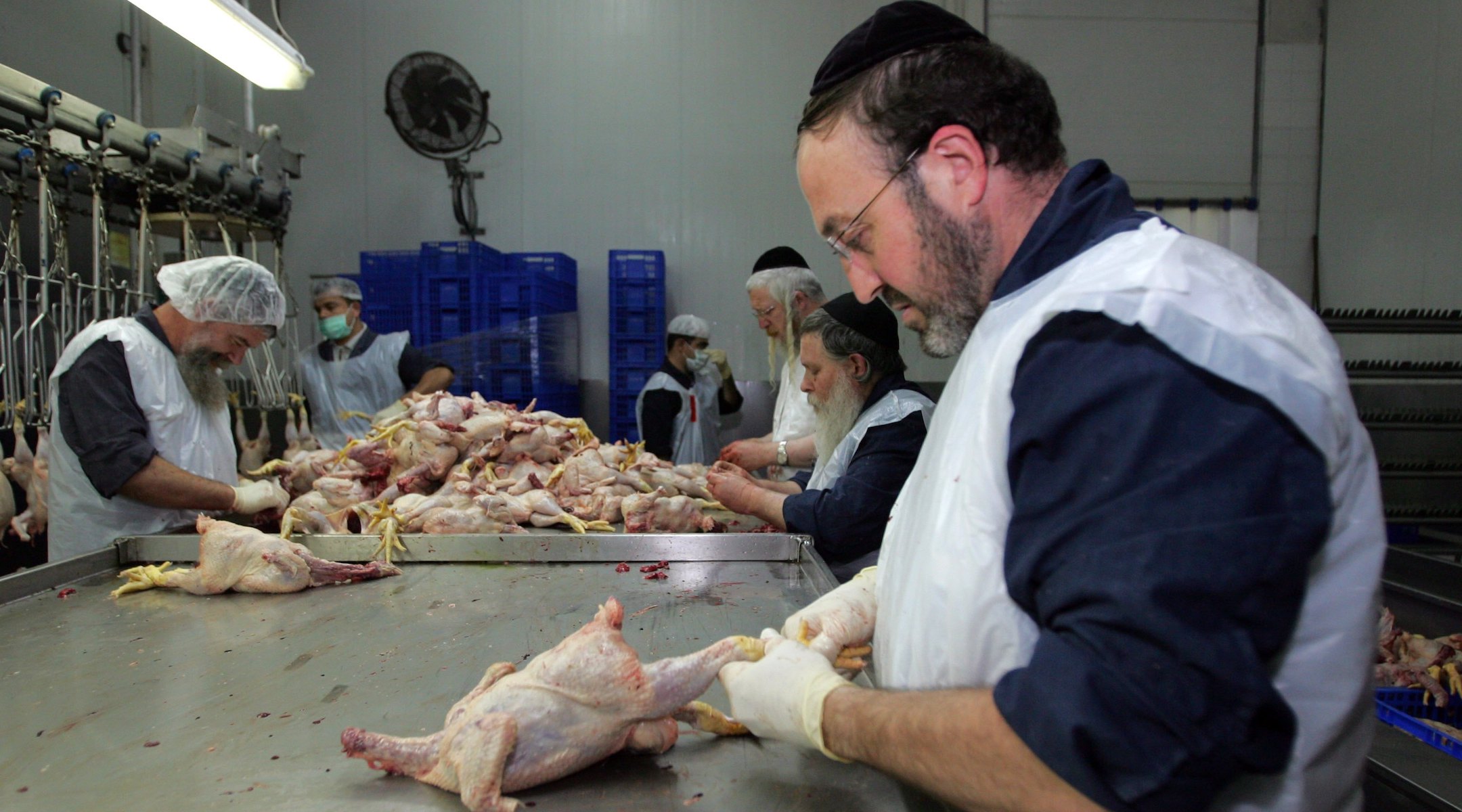(JTA) – The European Union’s highest court has upheld Belgium’s bans on slaughtering animals without first stunning them, a ruling that confirms the prohibition on the production of kosher and halal meat in parts of Belgium and clears a path for additional bans across Europe.
Israel’s ambassador to Belgium called the ruling “a blow to Jewish life in Europe.”
Two of Belgium’s three states last year banned the slaughter of animals without first stunning them, a key requirement of kosher meat production. The laws were passed over the vociferous objections of Jewish and Muslim community leaders, and several groups — including one representing French-speaking Jews in Belgium — filed a petition arguing that the bans illegally limit religious freedom.
On Thursday, the EU Court of Justice issued its decision: Bans on slaughter of animals for meat without stunning do not violate EU principles on freedom of worship.
The ruling is a major defeat for efforts currently underway to challenge bans against ritual slaughter in several EU countries including Sweden, Finland, Estonia, and Luxembourg, where the EU court is based. It also means that lawmakers in additional countries could impose bans without running afoul of EU rules.
The ruling “gives member states a free pass on banning” ritual slaughter in Europe, Yohan Benizri, president of the Belgian Jewish CCOJB group that joined the petition, said in a statement. Europe, he said, “no longer protects religious minorities.”
Israel rarely comments on the debate on ritual slaughter. But Israel’s ambassador to Belgium, Emmanuel Nachson, said the ruling is “catastrophic and a blow to Jewish life in Europe.”
Supporters of the ban are cheering its potential to limit ritual slaughter across the continent. “As Flemish people we can be very proud of this ruling,” which is “historic” and “opens the door to a ban in the whole of Europe,” Ben Weyts, the cabinet minister in charge of animal welfare in Belgium’s Flemish region, wrote on Twitter.
In Judaism and Islam, animals need to be conscious when their necks are slit for their meat to be considered kosher or halal. That has made ritual slaughter a ripe target in Europe from both liberals who cite animal welfare as their main concern and right-wing nationalists who view the custom as foreign to their countries’ cultures. (Ritual circumcision, too, has united opponents on the left and right.)
In Belgian’s Flemish region, the first to introduce a ban, the effort was led by members of the center-right New Flemish Alliance ruling party. In the French-speaking Walloon region, the ban was supported by the Socialist ruling party. (The Brussels region has no ban.)
The plaintiffs argued that the bans violate the European Union’s Charter of Fundamental Rights as they effectively deny Belgians the right to consume locally produced meat that conforms with the production methods mandated by their faith.
The court ruled that the ban on slaughter without stunning “respects the essence” of the charter, “since it is limited to one aspect of the specific ritual act of slaughter, and that act of slaughter is not, by contrast, prohibited.” But it emphasized that in Belgium only ”one aspect” of ritual slaughter has been banned while others may be observed, potentially leaving open the door to adaptations of ritual practices that are in use elsewhere.
The bans in Belgium “allow a fair balance to be struck between the importance attached to animal welfare and the freedom of Jewish and Muslim believers to manifest their religion,” the court ruled. It concluded that EU member states have the “discretion” to enact measures such as the Belgian bans.
Some Jewish and Muslim communities, including in Austria, certify as kosher and halal meat produced by a procedure known as post-cut stunning, in which animals are stunned immediately after their necks are cut.
“Judaism will not change Halakhic requirements as per the demands of the EU Court of Justice,” said Rabbi Menachem Margolin, the head of the Brussels-based European Jewish Association, in response to the ruling, using the Hebrew word for Jewish law.
But Margolin said that had Belgium’s parliament “engaged properly with Jewish community officials before banning the practice, some satisfactory solutions could have been found, as has been the case in the Netherlands and elsewhere, because the method of slaughter is not crueler or [more] painful to animals than other methods.”
Pinchas Goldschmidt, president of the Conference of European Rabbis, also took issue with the court’s implied assessment of the adaptability of the religious practice of shechitah, Hebrew for slaughter.
For the court “to seek to define shechita, our religious practice, is absurd,” Goldschmidt said.
JTA has documented Jewish history in real-time for over a century. Keep our journalism strong by joining us in supporting independent, award-winning reporting.






